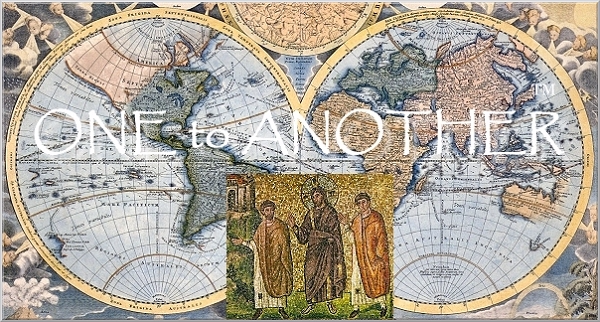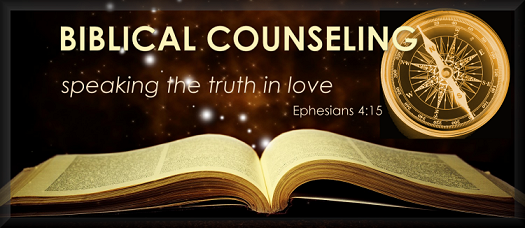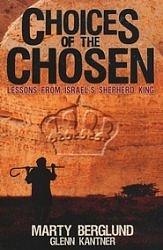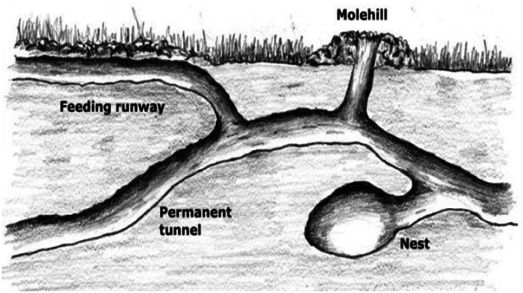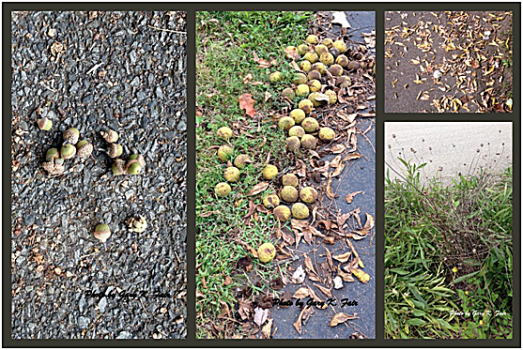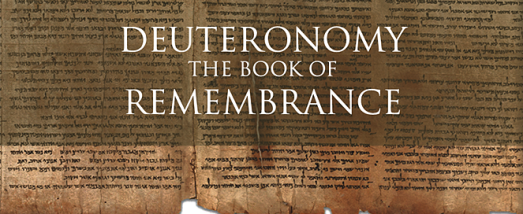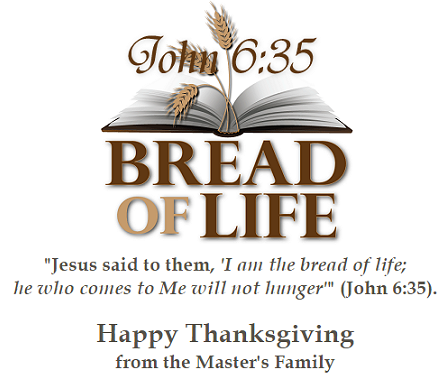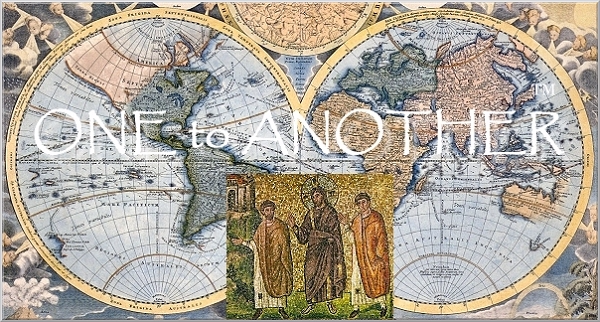MASTER'S International UNIVERSITY of Divinity
Bi-Monthly Information and Teaching Journal
ONE to ANOTHER ~ October - November 2017 ~ Volume III ~ Issue 6
In This Issue
The Moral Difference Between Right & Wrong|Sinful Habits | The Holy Spirit and Prayer | Book Review
Divine Appointments | Abortion Advocates Celebrate Abortion | Moles: Digging for the Glory of God
Rising to New Life | The Lost Chapters of Deuteronomy | My Ever-Present God | A Thanksgiving Thought
How Do Humans Beings Know the Moral Difference Between Right and Wrong? Or, What is Natural Law and the Noahide?
Part II
Continued from the previous Journal.
Dennis D. Frey, M.Div., Th.D., President
NEW COURSE AVAILABLE - Interested in learning more about this subject? Master's offers a new Advanced Accelerated Course on this often negleced subject. The Laws of Universal Righteousness: Natural Law, the Noahide and the Torah LUR-1500-AOC
The purpose of this course is to address the fundamental question of how it is that human beings understand the moral difference between right and wrong, and why that understanding commands personal accountability.
Click here for information on signing up for this special four-week course.
II. WHAT IS NATURAL LAW?
Fundamentally Natural Law is a body of rules that govern moral conduct. But that definition must be fleshed out, that is, expanded into actual human life and practice. If it is natural, then it is not something externally acquired, but innately rises from within. Christian philosopher J. Budziszewski (Boo-jee-shef-skee)expands on this by noting:
"As a Christian I regard the natural-law tradition as the nearest approach to the truth about 'law written on the heart' which ethical and political philosophy have yet, by the grace of God, achieved. I do not mean to be flippant in speaking of God's grace. True, the law written on the heart is utterly inferior to the revealed truth of the gospel, for though it tells us what sin is, it tells us nothing of how to escape it. Yet it too is a real gift of God, for we have to know the bad news before we can grasp the Good News." 1
The Apostle Paul further expands on the idea of an innate knowledge of morality when he writes to the church in Rome:
"For when the Gentiles who do not have the Law do instinctively the things of the Law, these, not having the Law, are a law unto themselves in that they show the work of the Law written in their hearts, their conscience bearing witness and their thoughts alternately accusing or else defending them, on the day when, according to my gospel, God will judge the secrets of men through Christ Jesus." (Romans 2:14-16).
Dr. Adam Clarke in commenting on Romans 2:14, 15 expresses the natural understanding of what Paul so clearly communicated:
"[They]Do, without this Divine revelation, through that light which God imparts to every man, the things contained in the law - act according to justice, mercy, temperance and truth, the practice of
which the revealed law so powerfully enjoins; these are a law unto themselves - they are not accountable to any other law, and are not to be judged by any dispensation different from that under which
they live.
Rabbi Tanchum brings in the Supreme Being as saying: When I decreed anything against the Gentiles, to whom I have not given laws and statutes, and they know what I have decreed; immediately they
repent; but the Israelites do not so. Tanchum, fol. 43. 2.
[Clarke continues] Verse 15
Which show the work of the law - In acting according to justice, mercy, temperance, and truth, they show that the great object of the law, which was to bring men from injustice, cruelty,
intemperance, and falsity, is accomplished so far in them: their conscience also bearing witness - that faculty of the soul, where that Divine light dwells and works, shows them that they are right;
and thus they have a comfortable testimony in their own souls of their own integrity: their thoughts, the mean while, accusing, or else excusing one another; or rather, their reasonings between one
another accusing or answering for themselves. As if the apostle had said: - And this point, that they have a law and act according to it, is farther proved from their conduct in civil affairs; and
from that correct sense which they have of natural justice in their debates, either in their courts of law, or in their treatises on morality. All these are ample proofs that God has not left them
without light; and that, seeing they have such correct notions of right and wrong, they are accountable to God for their conduct in reference to these notions and principles." 2
Therefore, from sacred Scripture and secular history we have a body of understanding that has promoted, protected, and preserved universally acknowledged values that are accepted as being naturally understood. That these are not naturally obeyed does nothing to diminish the innate awareness of their existence. As Clarke noted above: "seeing they have such correct notions of right and wrong, they are accountable to God for their conduct in reference to these notions and principles." 2
To be continued...
1. Written on the Heart: The Case for Natural Law, J. Budziszewski, ISBN-13: 9780830818914, IVP Academic, 1997, page 11.
2. Adam Clarke (1760 - 1832), Romans, http://odl.studylight.org/commentaries/acc/romans.html
Sinful Habits - "His own iniquities shall take the wicked himself, and he shall be holden with the cords of his sins" (Solomon, Proverbs 5:22, KJV).
Solomon compares sin to a net in which a rabbit or bird is trapped. Charmed by sin’s apparent pleasantness, Solomon said, man indulges in it and eventually becomes entangled in its meshes so that he cannot escape.
Man is first attracted to sin and eventually he is bound by it and cannot free himself. A sinful habit has been formed. Resolutions to transform himself and live a better life is all for naught. He has become habituated to the sin and it holds him captive like a bird in a fowler’s net. His sin, which at first brought him pretentious pleasure, turns into regret and remorse.
A very great power is sin, a dark power, deadly, highly injurious and destructive. It is a Pandora’s Box from which all evil has come to the human race. Every part of of man’s being is indwelt by sin therefore he must be on guard constantly against temptation and sin. No matter how strong his will may be it is a power that can subdue, control and bind him like cords or ropes.
When God created mankind, he made him with the capacity to formulate habits. Without this ability, a person would have to think about everything he does or says. Every action would have to be thought out and performed in a methodical, meticulous, and laborious way.
The blessing of habit allows a person to carry out complicated tasks comfortably and automatically. It makes writing a letter to a friend possible without relearning how to write the letters of the alphabet. Walking, talking and literally, thousands of different things and combinations of things are made possible by man’s ability to create habits. The ability to develop habits is truly a blessing.
However, indwelling sin makes it easy to develop sinful habits. Teaching a counselee to develop godly habits is what Christ-likeness is all about.
Over time, and by practice, people become habituated to certain tasks. The writer of Hebrews wrote about habits when he said, “But solid food is for the mature, who because of practice have their senses trained to discern good and evil” (Hebrews 5:14).
People become habituated to many behaviors, attitudes and moods. For example, greed is a learned behavior or habit. Peter wrote: “Having eyes full of adultery that never cease from sin, enticing unstable souls, having a heart trained in greed, accursed children” (2 Peter 2:14).
Some people are never satisfied or content. Paul was one of those people, but he said he learned how to be content. He wrote, “Not that I speak from want; for I have learned to be content in whatever circumstances I am” (Philippians 4:11). People who have sinful habits can change. Jeremiah wrote: “Then you also can do good who are accustomed to doing evil” (Jeremiah 13:23).
Paul wrote to Titus concerning believers who had been enslaved or habituated to sinful practices, but had changed. He said, “For we also once were foolish ourselves, disobedient, deceived, enslaved to various lusts and pleasures, spending our life in malice and envy, hateful, hating one another” (Titus 3:3).
Sinful habits CAN BE replaced with the habits of holiness!
The Holy Spirit and Prayer
Read Romans 8:26-27
You may have heard about the fellow who prayed this prayer:
“So far today, God, I've done all right. I haven't gossiped, haven't lost my temper, haven't been greedy, grumpy, nasty, selfish, or over-indulgent. I'm really glad about that. But in a few minutes, God, I'm going to get out of bed and from then on I'm probably going to need a lot more help. Thank you. In Jesus name. Amen.”
Many of us perhaps can identify with that prayer. One thing is for certain: we do realize the importance of prayer in the life of a Christian and in the life of a church. Therefore, in this article we want to consider the Holy Spirit and prayer.
The prophet Zachariah refers to the Holy Spirit as the Spirit of supplication (Zechariah 12:10). The Apostle Paul states that we have access by the Holy Spirit to the Father (Ephesians 2:18). The Apostle Paul also indicates that we are to pray in the Spirit (6:18). Jude also tells us to pray in the Holy Spirit (Jude 1:20).
The Holy Spirit therefore is our prayer Partner. He makes our prayer life successful. As we understand His role in prayer, we will do more than have a religious ritual, we will learn what it means to pray with power. A key passage for this truth is Romans 8:26-27.
Paul begins this passage with three vital words: The Spirit helps (Rom. 8:26). We, of course, know about the Spirit. He is the Spirit of God. He brings us to salvation. He indwells us at the moment of salvation and makes the Christian life possible. He is our prayer Partner.
The word helps is in the present tense. The Holy Spirit keeps on helping. The word means to help another with a heavy load. We have probably discovered by now there are some things in life that are just too heavy for us to bear alone. We know what it is to be burdened down by life’s events. The good news is we do not have to endure these burdens alone. The Holy Spirit helps.
Paul says the Holy Spirit helps in our weaknesses (Rom. 8:26). This signifies our state of being. We are by nature spiritually weak and need help continually. This is especially true in our prayer life
Notice carefully Paul’s next statement: we do not know what we should pray for as we ought (Rom. 8:26). The word know is the Greek word “oida” which means to know by nature or to have a complete understanding or fullness of knowledge. This passage literally says, “We do not know what we should pray as it is necessary.” Thus, we do not know by nature how to pray or what to pray for.
Paul then gives us the secret to a powerful prayer life: the Spirit Himself makes intercession for us (Rom. 8:26). This statement is in the present tense and means the Holy Spirit keeps on interceding for us; thus this is a continual ministry. This Holy Spirit ministry does not stop.
The Greek word translated intercession means “to meet with one for the purpose of approaching another to make supplication.” This, for example, is the work of a lawyer or an advocate. He meets with his client to dictate what the client is to say and how the case should be presented. He then goes with the client and makes supplication before the court on his behalf.
This the Holy Spirit does for us. He teaches us how to pray and what to pray for. He then goes with us to the Father helping us lift our prayers to the throne of grace.
Therefore before we approach the Father in prayer, we are to be taught of the Holy Spirit. Only a Spirit-taught believer can really pray. We do not know what we need, but He does. We do not know how to ask of the Father, but He does. We allow Him to impress upon us our needs and then together we approach the Father. Thus prayer is to the Father, through the Son, and with the Holy Spirit. So the Spirit:
- Impresses us with the content of prayer: “This is what you need.”
- Helps us with the form of prayer; “This is how to ask.”
- Goes with us to the Father – He intercedes for us.
- Presents our needs to the Father. So while we ask the Father, the Holy Spirit asks also.
Paul states that the Spirit asks with groanings which cannot be uttered (Rom. 8:26). The literal translation is “with sighs that baffle words.” The work of the Holy Spirit goes beyond what can be expressed in mere human words. His ministry is one of those unspeakable or inexpressible works (II Cor. 9:15; 12:4).
Paul continues with these words: Now He who searches the hearts knows what the mind of the Spirit is (Rom. 8:27). God has complete knowledge and understanding of the human heart. He also knows the mind of the Spirit who dwells in our hearts. Those “sighs that baffle words” are completely understandable to God.
The Holy Spirit makes intercession for the saints according to the will of God (Rom. 8:27). The word translated intercession in this verse is a different word from verse 26. This word literally means “to meet with another in order to converse.” Here we see the Holy Spirit meeting with the Father to converse with Him for the saints. This is God’s prayer plan of action for His people.
In our prayer life, the Holy Spirit goes beyond our ability. He asks things of the Father that we forget or that we overlook or that we miss or that we do not know we need. He meets with the Father to converse about us. He asks the Father to give us specific things that we need. As our intercessor He asks the Father to give us what will be for our good and God’s glory. The Holy Spirit prays as our substitute and thus on our behalf. He lifts our burdens to the throne of grace.
When we pray we open ourselves to a very special ministry of the Holy Spirit. We are to approach Him that He might impress us with our needs, help us formulate these needs into a request, and go with us to the Father. Then as we ask of the Father, the Holy Spirit asks also.
The Holy Spirit also meets with the Father to ask for those things we overlook or those things we do not realize we need. He always asks for what is best. Let us therefore learn to pray in the Spirit.
Choices if the Chosen: Lessons from Israel's Shepherd King
Marty Berglund and Glenn Kanter. Fort Washington. CLC Publications, 2012.
Cheryl A. Durham, M.Min., Ph.D., Dean of Students
This little volume would be a good read for pastors or biblical counselors who want to apply King David’s heart for God in several ways. The book is made up of thirteen different essays on aspects of David’s relationship with God, how he encountered trials and temptations and how he weathered those encounters.
Each essay deals with a different dilemma and has a devotional feel to it. In the end there is a prayer applicable to the chapter’s topic.
A pastor could use this as sermon stories or examples and apply them to his weekly topic. A Biblical counselor, similarly, could use the stories as application for the counselees who can identify more with stories than straight reading of the text.
Even if one is not a pastor or a counselor, one could read it as a devotional for a season. The content would help the reader to apply David’s trials to his or her own context. I would recommend it for anyone seeking to connect with David’s relationship with God and who would seek that type of relationship for themselves or by way of helping others.
Note: This book can be purchased as an eBook through Master's Online Bookstore: http://mdivs.christianbook.com/ Stock No: WW38739EB
Divine Appointments
Part I
David W. Anderson, Ed.D., D.B.S.; Program Developer and Director for the Master of Arts Certificate in Disabilities Ministry
We often read the Gospels as “stories” — just a series of events collated by the gospel writers to meet the purposes for
which they wrote. Readers may fail to recognize that, through His teaching and actions, Jesus was revealing the
character and power of God as well as His own Divinity. What the authors of the gospels reported were not accidental or
coincidental happenings. God was in control, purposefully guiding the events in the life of Jesus. Many of the events
recorded in the Gospels can be understood as divinely scheduled appointments.
Divine appointments in Jesus’ earthly ministry
We read in John 4 that Jesus “had to go through Samaria” on His way to Galilee. Most Jews, rather than setting foot in
Samaria, would take a longer route, crossing to the east side of the Jordan before heading north, then re-crossing the
Jordan to enter Galilee. Why, then, did Jesus “have to” go this way? He “had” to pass through Samaria in order to meet
the woman at Jacob’s well outside the village of Sychar. The intent of this divine appointment was to bring the good news
of the gospel to this woman and others from Sychar. Another such divine appointment occurred when Jesus entered
Jericho in Luke 19. The crowd lining the street as He entered was large, forcing Zacchaeus, a man of short stature, to climb
a tree in order to see Jesus as He passed. Jesus saw him, called him by name, and invited Himself to dine at the home of
Zacchaeus. Could Jesus have been looking for Zacchaeus?
Yet again, in John 5 we read of Jesus at the porticoes beside the pool of Bethesda. Undoubtedly there were many people
by the pool who had various disabilities, but we are told only of Jesus interacting with one man who had been disabled for
38 years. Divine appointment. Likewise, in John 9, Jesus came upon a man who had been blind from birth and, after
correcting His disciples’ misunderstanding that personal or parental sin was the reason for the man’s blindness, Jesus took
action to give sight to the man. An accidental encounter? No, a divine appointment.
Recognizing that many (if not all) of Jesus’ encounters described in the gospel narratives can be considered divine
appointments helps us better understand Jesus’ ministry and its implications for our lives and ministry today. Jesus wanted
the disciples to learn from His words and from His actions. In John 9:4, Jesus specifically invited the disciples to become His
fellow workers saying“We must work the works of Him who sent Me as long as it is day” (NASB, emphasis added). His
disciples did not actively participate in the blind man’s gaining sight, but His disciples — then and now — do participate in
Jesus’ work as “sent ones” (John 20:21; Matthew 28:19–20). Paul later referred to Christians as co-workers or partners in
spreading the gospel (1 Corinthians 3:9; 2 Corinthians 6:1). Should we not then also expect “divine appointments” in our
lives?
The occurrence of divine appointments
Divine appointments do not appear on our daily schedule, and they may not announce themselves at the time; we may
only recognize them after the fact. Certainly, it was a divine appointment for me to meet Kay when, as teenagers, she
invited me to go with her to a local church where I met Mel and Donna, the youth fellowship leaders whose love and
life-witness opened me to the gospel. My “appointment” with Mel also led me to attend Gordon College, his alma mater,
where I met Florence, who later became my wife (of 53 years and counting!). Still another appointment occurred while
working in a soils lab after college, when a Christian gentleman from the business office who, perhaps aware that I was
thinking about becoming a teacher, was led by God to share a copy of Psychology Today which contained an article
about brain chemistry and Down syndrome. I remember little of that article, but I clearly recall the accompanying photo of
a beautiful young girl with Down syndrome. God used that photograph to arouse in me an interest in special education.
Shortly thereafter, I met with a professor at Temple University to inquire about the graduate program in special education.
As I was leaving her office, she mentioned, almost as an afterthought, that the university expected to receive a federal
grant which would cover tuition costs for full time study and provide a monthly stipend, and invited me to apply.
Accidental coincidence? I think not! Perhaps you can think of some divine appointments that have shaped your life.
To be continued...
REFERENCES:
Graham, D. (2003). Teaching redemptively: Bringing race and truth into your classroom. Colorado Springs, CO: Purposeful Design Publications.
Guinness, O. (1998). The call: Finding and fulfilling the central purpose of your life. Nashville, TN: Word Publishing.
Hartshaw, J. R. (2010). Prophetic voices, silent words: The prophetic role of persons with profound intellectual disabilities in contemporary Christianity. Practical Theology, 3 (3), 311–329.
Hillman, G. (2008) Calling and spiritual formation. In P. Pettit (Ed.), Foundations of spiritual formation: A community approach to becoming like Christ (pp. 195–216). Grand Rapids, MI: Kregel Publications.
McNair, J. (2009). The church and disability: The weblog disabled Christianity. CreateSpace Independent Publishing Platform.
Miller, D. L. (2009). LifeWork: A biblical theology for what you do every day. Seattle, WA: YWAM Publishing.
Ortberg, J. (2005). God is closer than you think. NY: MSF Books.
Ortlund, R. (2014). The gospel: How the church portrays the beauty of Christ. Wheaton, ILL: Crossway.
Snyder, H. A. (2004). The community of the king. Downers Grove, IL: InterVarsity Press.
Zacharias, R. (2007). The grand weaver: How God shapes us through the events of our lives. Grand Rapids, MI: Zondervan.
Abortion Advocates Celebrate Abortion
Bradley Mattes, M.B.S. MIUD Adjunct Faculty; President and CEO of Life Issues Institute, Inc.
Our culture loves to celebrate. Birthdays, anniversaries, job promotions or a team victory are all reasons for merriment.
But Americans understand some events require sober reflection. For example, we don’t celebrate the tragedy of one person violently killing another. Sadly, there are those among us who actually want you to celebrate death.
Abortion advocates are desperate to reduce the stigma attached to killing innocent unborn babies in their mothers’ wombs. Part of their strategy is to generate a celebratory environment surrounding abortion. Toward that end they are asking women who’ve had abortions to publically glorify their experience.
It’s not just the radical fringe of the pro-abortion movement that wants everyone to revel in this human carnage. Leading abortion supporters have turned the corner from advocating “choice” to publically celebrating abortion.
The recent antics of actress Martha Plimpton sickened a good many Americans. Standing before a Seattle audience she glibly announced that her first abortion was in her opinion her “best” abortion. “Heads and tails above the rest” she declared.
Some have accused actress Lena Dunham of coming unhinged regarding her promotion of abortion that clearly crossed the line of decency. During one of her podcasts she remarked, “Now I can say that I still haven’t had an abortion, but I wish I had.” (Emphasis added)
Planned Parenthood bills itself as a mainstream, indispensable provider of women’s healthcare, falsely claiming that abortion makes up only three percent of the services they offer. This is in sharp contrast with their aggressive push for abortion-on-demand throughout pregnancy. Planned Parenthood’s attempt to minimize their true abortion activism hasn’t stopped them from publically celebrating the tragedy of abortion.
They have a website called Celebrate Roe which they trot out during the anniversary of Roe v Wade to celebrate the US Supreme court ruling that has lined their pockets and so far claimed the lives of nearly 60-million babies—a mind-blowing number equal to the total population of several states.
Shout Your Abortion is one of the latest campaigns in an attempt to persuade Americans that abortion functions as a positive in women’s lives. They have a website by the same name that gives women the opportunity to enthusiastically tout their past abortion(s). It also features an online store where you can purchase a myriad of items like T-shirts, totes and jewelry singing the praise of abortion. The less obscene taglines include Abortion is Freedom and Everyone Knows I Had an Abortion.
Elle, a fashion and beauty website in the United Kingdom ran an article earlier this year titled 11 Powerful Women Who Have Spoken Out About Their Own Abortion. The list includes pro-abortion icons such as ultra-feminist Gloria Steinem and actress Whoopi Goldberg. It also features feminist author Polly Vernon who described her three abortions as nothing more than “three messy, silly scenarios.” Cecile Richards, president of Planned Parenthood said her abortion “wasn’t a difficult decision.”
While every one of these 11 women continue to defend abortion, not all of them revel in its memory. Singer Nicki Minaj said her abortion has “haunted me all my life…” Stevie Nicks wrote a touching and very popular ballad called Sara, the name she would have given to her baby. Sinead O’Connor also wrote about her abortion experience in a song titled My Special Child.
Few who have experienced the trauma of abortion want to publically celebrate it. Quite the opposite. Millions of grieving mothers and fathers are living, breathing testimonies to the fact that abortion often inflicts grave emotional and spiritual wounds.
Celebrating abortion is both an extreme and wildly unpopular strategy. Most Americans—pro-life and pro-abortion—are repulsed by the idea of applauding or making light of an action that results in the death of a baby over 2,500 times a day.
By highlighting this extremist behavior we can make additional converts to our cause. And we should be in regular prayer for these tormented souls, asking the Holy Spirit to turn their hearts to the truth of abortion.
MOLES: Digging for the Glory of God
James J.S. Johnson, Th.D., J.D., MIUD Board of Advisors,
Chief Academic Officer, The Institute for Creation Research
The day will come, before Messiah (Jesus) returns in power and judgment, when God-rejecting idolaters will cower in fear, trying to hide in the earth, knowing that their accountability is ripe: “In that day a man shall cast his idols of silver, and his idols of gold, which they made each one for himself to worship, to the moles and to the bats, … for fear of the Lord ….” (Isaiah 2:20-21a). The English word “mole” (in KJV) is a translation of the Hebrew noun chapharpêrâh, derived from the verb châphar, meaning “to dig” – and digging is what moles are best known for doing. (For illustrations of the Hebrew verb châphar, “to dig”, see Genesis 21:30 & Ecclesiastes 10:8.)
How do moles dig? “The mole excavates its burrow by backward strokes and lateral thrusts of the front feet. Loose earth is moved and pushed to the surface by thrusts of the front feet. In excavating shallow runs, the mole merely pushes up the earth to form a ridge, again by lateral thrusts of the front feet while the mole is turned partly on its side.” [Quoting David J. Schmidly, THE MAMMALS OF TEXAS (Univ. of Texas Press, 2004), page 60.]
Who taught the mole to do such underground digging, and to do it so successfully that moles live all over much of America? Who equipped the mole with the anatomy it needs to do this subterranean work?
Those who intelligently design and/or carefully operate oil-drilling equipment can appreciate the digging powers of moles, because digging underground is an art! Innovative petroleum engineers deserve to be appreciated for their underground earth-burrowing technology. If you think serious underground digging is “simple” try drilling for oil --- or try to mine out minerals from under the earth!
But oil-drilling equipment cannot reproduce itself into generation-after-generation families of their kind – yet moles reproduce successfully, all around America, and we don’t notice or appreciate it. God, however, deserves praise for equipping the humble mole for its down-to-earth (or rather, down-under-the-earth) station in life.
Moles are created to dig and they do – to God’s glory! Their Creator is worthy of worship (Revelation 4:11). Idolatry is foolish; we should avoid it in whatever form it appears (1st John 5:21), as we seek to harness each day as a day of worshipping our soon-coming Lord Jesus, the Maker of Heaven and Earth (John 1:3).
Dr. James J. S. Johnson, as a boy, learned to recognize the surface evidence of moles’ shallow burrowing. Since his boyhood he has tried to appreciate the human life God gave him, and to recognize what God prioritizes – so as to avoid “making mountains out of molehills!”
It is the middle of September here in Southern Indiana. That means changes are beginning to appear in the great outdoors. We are blessed in this area with the beauty and the variety of God’s
creation. The four seasons bring changes not experienced in other areas of our country and most of the rest of the world. We are not limited to constant sunshine and oppressive heat, or months of
mounds of snow and extreme cold.
So, September comes and signs of autumn, or fall, begin to appear.
- Leaves fall from a wide variety of trees.
- Squirrels scurry to store away food for the winter.
- Walnuts fall from the mature walnut trees; acorns are shed from the stately oaks; hickory nuts drop from the tough hickory trees.
These all produce nuts to provide that food for the squirrels.
The flowers which graced the gardens during the summer with their vibrant array of colors are now drab and lifeless, bowing their heads in humility in their dying moments.
We might be tempted to look upon this death of seasonal beauty which surrounds us during the spring and summer months as permanent. But we have the promise that summer’s beauty will return in the
spring and flourish again in the summer. I am reminded of Jesus words in John 12:24 where He taught the apostles, “Very truly I tell you, unless a kernel of wheat falls to the ground and dies, it
remains only a single seed. But if it dies, it produces many seeds.”
So, as we reluctantly view the departure of the warmth and beauty of summer, we must remember that God has designed His world for His people to enjoy, not for just a season, but daily, and for the
years of our lives. But, just as our earthly lives are limited, so are the elements of nature. Jesus taught, in order for leaves to reappear in the spring of each year, they must fall at the end of
the summer season. If the squirrels are to survive the winter, the fruit of the nut trees must fall to the ground. The beauty of the flower does not appear only once, but the seeds fall to the
ground, die, and produce multiple seeds ready to sprout and bloom in summer.
These changes must take place so that plant and animal life becomes perpetual. Jesus promised His followers a perpetual life as well. That life, which we know as eternity, is only possible because
the Son of God, Jesus Christ, died and was buried. Just as these natural seasonal changes occur, with expected renewed life in the spring, we can stand on the promise that Jesus Christ has risen from
the grave, and is today alive, and He is preparing a time for His faithful to be resurrected and risen to a renewed and eternal life with Him.
No changing seasons, no bitter cold or oppressive heat. But unending life in the perfectness of heaven where we will continually worship and praise our Lord Jesus Christ in the presence of God.
The Lost Chapters of Deuteronomy - Part II
Continued from the previous edition.
James B. Solberg, M.Div., D.D.,
MIUD Adjunct Faculty; and member of the MIUD Board of Directors; U.S.A. National Director, Bridges for Peace International
Day Four: Deuteronomy 33: 18-21
Zebulun and Issachar: "Celebrate, Zebulun, as you go out,
and Issachar, as you stay home. Gad: "Blessed is he who makes Gad large. Gad roams like a lion, tears off an arm, rips open a skull. (Deuteronomy 33:18 & 20)
The rabbis interpret the blessing to Zebulun “as you go out” as a blessing in trading and business; and they interpret the blessing to Issachar “as you stay home” as a blessing of Torah study. Gad is blessed with strength.
Zebulun and Issachar were full brothers, both sons of Jacob and Leah. Gad was a half brother, son of Jacob and Leah’s maid Zipah. Again we see that God is not a “respecter of persons,” but knows, forms, and gifts us each individually. The full brothers Zebulun and Issachar are given almost opposite blessings, and presumably opposite skills and personalities. And Gad, who might have been thought of as the least, gets both strength and praise in these blessings.
What hope for each of us. Our future is not determined by our parentage or birth order, but by God’s plans and blessings on our lives. We join the psalmist David in proclaiming:
"Your eyes saw my substance, being yet unformed. And in Your book they all were written, The days fashioned for me, When as yet there were none of them. How precious also are Your thoughts to me, O God! How great is the sum of them" (Psalm 139:16,17)!
Prayer: LORD, May we live with hope and expectation each day that You have fashioned for us, seeking to be all and to accomplish all that You have prepared for us. Amen
Day Five: Deuteronomy 33:22-26
“O Naphtali, satisfied with favor, And full of the blessing of the Lord, Possess the west and the south.” And of Asher he said: “Asher is most blessed of sons; Let him be favored by his brothers, And let him dip his foot in oil" (Deuteronomy 33: 23,24).
Outside of what you just read in these two verses, what can you tell me about Naphtali and Asher? If the answer is “not much," don’t be too ashamed. There is little written in Scripture about these two brothers or their descendants. These might be the two least remembered and least known tribes.
Naphtali is Jacob’s son through Bilhah, Rachel’s maid; and Asher is his son through Zipah, Leah’s maid. Of the twelve sons, Asher is number 6, and Naphtali number 8 – arguably both suffering from what today we would describe as middle child syndrome. Naphtali’s name means “struggling or wrestling”, but Asher means “happiness.”
Despite their relative anonymity, look at the blessings they are promised. In fact, if you read through the whole list of Moses prophesied blessing to the twelve tribes, you might agree with me that these might be the best. Who wouldn’t like to brim with blessings and be the favorite?
These verses and promises give us hope. No matter where we stand in our family, we are each special and chosen by God. Others may never know it or see it, but our blessings may well exceed those of the rich and famous. In fact, many of the rich and famous would tell you they would gladly abandon all wealth and fame for peace, joy, and privacy.
Prayer: Lord, help us to seek and enjoy the blessings you have selected individually for each of us. In You may we find true joy and abundance. Amen
Day Six: Deuteronomy 33:27 – 34:12
"Then Moses went up from the plains of Moab to Mount Nebo, to the top of Pisgah, which is across from Jericho. And the Lord showed him all the land of Gilead as far as Dan, all Naphtali and the land of Ephraim and Manasseh, all the land of Judah as far as the Western Sea, the South, and the plain of the Valley of Jericho, the city of palm trees, as far as Zoar. Then the Lord said to him, 'This is the land of which I swore to give Abraham, Isaac, and Jacob, saying, I will give it to your descendants. I have caused you to see it with your eyes, but you shall not cross over there.' So Moses the servant of the Lord died there in the land of Moab, according to the word of the Lord" (Deuteronomy 34: 1-5).
Is this an end or a beginning? Moses, the only leader that these Israelites had ever known is taken away. A few verses later we read that the Israelites mourned Moses passing with weeping for thirty days.
And yet, even in Moses passing, God repeats his promise for the future. He has given the Land of Israel to the people of Israel. As lovers of Israel we often quote Genesis 12:3 where we read of God promising the Land to Abraham and his descendants. But this is not an isolated or one time promise. It is a promise repeated multiple times to multiple people and recorded in multiple chapters and verses. God Himself reminds Moses and us that He has made this promise not only to Abraham, but specifically also to Isaac and Jacob – that the promise flows through their lineage – what today we call the Jewish people. Heartbroken through Moses must have been to not personally enter the Land, he stood with generations of the Jewish people knowing and trusting God’s promise that the Land was and is theirs.
And the story was not ending, but transitioning. As Moses passed, Joshua was installed as the new leader, and would lead the people on to even greater victory than Moses had. Perhaps God comforted Moses by letting him know that for the future to be fulfilled he needed to let go and let another lead. May we each have the grace and wisdom to recognize that time with people we lead and responsibilities we hold. It was not the end; it is a new beginning. The Jewish tradition of an unending cycle of Torah reading in itself is a message that God’s Word and God’s will continue unbroken through the millennia.
Prayer: Lord, may we trust Your promises, and Your timing. Knowing You never fail. It is a gift to be used by You, but remind us that completion of Your will and Your promises does not depend on any of us, not even on Moses. Amen
Each time I have the privilege of speaking, writing, or teaching about God’s Word I am re-amazed at the depth and wonder of His Word. The rabbis teach that all knowledge and all truth are contained in Torah. I would personally broaden that some, but I more and more have come to believe that all knowledge and truth is contained, sometimes hidden, in Scripture. I hope these few comments on some of our lesser-studied Scripture have fanned the flame of your desire to look deeper and learn more of God and His Word.
In closing, I can’t resist mentioning a quote from the late radio broadcaster Paul Harvey. He would close his daily radio show, on for over 40 years, by saying “and now you know the rest of the story." So, with apologies to Paul Harvey, at the end of the article, I leave you by saying: “and now you know the rest of the Torah.”
My Ever-Present God
by Claire Eyrich, Daughter of David and Teresa Eyrich and Granddaughter of Dr. Howard & Pam Eyrich. Clarie is a freshman at Westminster School at Oak Mountain Presbyterian Church in Birmingham, AL.
Editor's Note: This article written by Dr. Eyrich's grandaughter, is included as a blessing to all Christian grandparents.
Howard Eyrich, Th.M., D.Min, Author; ACBC Fellow; MIUD Adjunct Professor; and member of the MIUD Board of Directors.
“Good times, bad times and everything in between - God has never left my side.” An unknown person quoted this statement, revealing one of the many truths in the Bible. God is omnipresent. He is with us through the good times, when we are walking on air and think nothing could go wrong. He is with us through the bad times, when we feel as if there is no way life could get any worse. He is with us through the end of time.
Throughout the Bible, God’s omnipresence is continually referenced. This means that God is constantly everywhere at the same time, which is physically impossible for humans to do. In John 16:32, it states, “Yet I am not alone, for the Father is with me.” This is just one of the countless examples of God’s presence never leaving us. God continues to show his immeasurable power through doing the physically impossible. When you fear being alone, you must know that God is always there.
“I will never leave you nor forsake you.” In Joshua 1:5, another example of God’s constant presence is listed. God promises to never leave us, promising his presence to each person on the planet. That is about 7 billion people God promised to never leave. God is in the Arctic with the native peoples while also being with the British people in England. No matter where you are, God is with you. Even if you are not a believer, God is still with you in your darkest times.
In Proverbs 15:3, it states, “The eyes of God are in every place, watching the evil and the good.” As God abounds in even the hardest and darkest places, he also abounds where there is joy and happiness. He is the creator of everything; therefore, as the creator, he chaperones his work and the enemy’s work all the time. He watches over us invariably, always guiding us and leading us in the right direction.
“God is everywhere, so pray anywhere.” Another unnamed author quoted this statement. No matter where on earth we are, God is there. So, wherever we pray, God will hear us. Jesus does not talk about God’s omnipresence in-depth. He does not mention it regularly and only by implication. But, it is frequently displayed throughout the Bible. God shows us again and again how he remains omnipresent, through the light and dark, the good and bad, and everything in between.
Editor's note: Thank you Clarie for blessing our readers. It is obvious that you have inherited something of your grandfather Eyrich's writing skills.
FOOD - great food, favorite food, traditional food, and enough food, too much food, and leftovers symbolize Thanksgiving Day in America! Therefore, it seems appropriate to share a brief thought on the subject of food and leftovers.
John 6:1-13 records the biggest meal ever served by Jesus during His earthly ministry (and with the many leftovers). It is of course, the Feeding of the Five-thousand. Not only was it the largest meal served by Jesus, He served it picnic style. This must have been the first Christian dinner-on-the-grounds!
While there are many wonderfully encouraging lessons throughout John’s recording of this event, we will consider a few of those tucked into the first seven verses:
1 “Some time after this, Jesus crossed to the far shore of the Sea of Galilee (that is, the Sea of Tiberias).” When Jesus crossed over to the opposite shore of Lake Galilee, He was fully aware that a great crowd of needy people would be following Him. He also knew that unless He changed to a more favorable location, the people would go hungry. He knew all of this before His disciples were aware of what He was doing, and before the people in that great crowd had any idea that He was making provision for them. That crossing was a divinely calculated event (a divine appointment). Jesus always knows our real need before we do, and has a plan by which to care for us.
2 “and a great crowd of people followed him because they saw the miraculous signs he had performed on the sick.” Our needs, once we become aware of them, always seem bigger to us than they do to God. The great crowd of people who followed Jesus had their own individual needs. They saw that Jesus had met the needs of others, and then began to consider their own situation. The miracles that Jesus performed on behalf of the sick were no small thing to those whom He healed, but to Jesus, the miracles in no way depleted His limitless stores of grace.
3 “Then Jesus went up on a mountainside and sat down with his disciples.” Jesus did not immediately set to healing or feeding. God does not always meet our needs exactly as we might wish or expect. There are times when in order to meet our greater needs He must prepare us. There are times when He will only sit down with us. However, we may be sure that His very presence is always His promise of provision.
4 ”The Jewish Passover Feast was near.” The Jews were preparing a great feast to honor the past deeds of Israel’s God, and to express their longing for His promised coming. As they did, their God was preparing a feast of another kind. Most of the Jewish leaders would miss this feast, but the humble in heart, the broken in spirit, the outcasts, the needy, the lame, the forsaken, and the forgotten were about to be fed by Israel’s Messiah. Let us beware lest we eat at the wrong table.
5-7 “When Jesus looked up and saw a great crowd coming toward him, he said to Philip, 'Where shall we buy bread for these people to eat?' He asked this only to test him, for he already had in mind what he was going to do. Philip answered him, 'Eight months' wages would not buy enough bread for each one to have a bite!” Jesus knew exactly what Philip was thinking. We are too often like Philip. Once we become aware of how great is the need of the moment, we cry out as if God himself were only then becoming aware of the situation.
Jesus knew that Philip could think only of an earthly way to meet the need. Philip thought he needed money and the work of those who made their living baking bread. However, Jesus would feed the people needing neither money nor the services of the baker. Yes, it often pleases God to supply our needs in such a manner as Philip imagined, but He is not bound by such means. God can supply all our needs according to His riches in Glory!
Do your needs look too great? Do they seem reconcilable only though money and bread? He will not permit us to suffer beyond what we are able to bear. He may supply our needs though the small lunch of a child, out of His great treasure, or through some unexpected gift of a friend, but remember this; the need is even now being met though it may not at this moment be in sight.
Charles G. Finney, was one of America’s greatest Christian preachers. He was the human instrument behind what is known as “The Second Great Awakening.” Finney recorded in his memoirs that after preaching to hundreds of thousands, he found himself, only a few years prior to the Civil War, at Oberlin College located in Ohio, where he was to teach, but at a time when there was no money to pay the salaries of the faculty. It was Thanksgiving Day, and His financial situation was desperate. He wrote the following account.
“At one time, I saw no means of providing for my family through the winter. Thanksgiving Day came, and found us so poor that I had been obliged to sell my traveling trunk, which I had used in my evangelistic labors, to supply the place of a cow which I had lost. I rose on the morning of Thanksgiving, and spread our necessities before the Lord. I finally concluded by saying that, if help did not come, I should assume that it was best that it should not; and would be entirely satisfied with any course that the Lord would see it wise to take. I went and preached, and enjoyed my own preaching as well, I think, as I ever did. I had a blessed day to my own soul; and I could see that the people enjoyed it exceedingly.
After the meeting, I was detained a little while in conversation with some brethren, and my wife returned home. When I reached the gate, she was standing in the open door, with a letter in her hand. As I approached she smilingly said, ‘The answer has come, my dear;’ and handed me the letter containing a check from Mr. Josiah Chapin of Providence, for two hundred dollars.
He had been here the previous summer, with his wife. I had said nothing about my wants at all, as I never was in the habit of mentioning them to anybody. But, in the letter containing the check, he said he had learned that the endowment fund had failed, and that I was in want of help. He intimated that I might expect more, from time to time. He continued to send me six hundred dollars a year, for several years; and on this I managed to live.”
God knows your needs as well, and it is His will to meet them in the manner that will best bring you to greater faith and maturity. He has lessons yet to teach you.
How often have we looked back on some seemingly impossible situation and realized that not only had God met our need, He had actually provided more than we really needed or deserved. The leftovers from the Feeding of the Five-thousand serve as a powerful object lesson of the ease with which the Lord is able to care for us.
The leftovers also teach us that God is not in the business of wastefulness. The leftover pieces were clean, nutritious, and valuable. He had them placed in baskets so that they would not be further broken or spoiled. Our Lord is the Master of conservation and good stewardship. He would have us be as well.
Finally, the leftovers teach us that God knows not only of our present, but also of our future needs. His provision for today is not the last. Jesus knew that some would be hungry again before they had an opportunity to get back home. He never sends us on our way without providing for the journey.
In light of such encouraging thoughts, there is every reason to “Let the peace of Christ rule in your hearts, to which indeed you were called in one body; and be thankful” (Colossians 3:15).
HAPPY THANKSGIVING, AND DO NOT FORGET TO SHARE THE LEFTOVERS!
Copyright © Notice ~ Articles may be freely shared with appropriate credit, but may not be otherwise used without the consent of the author.



